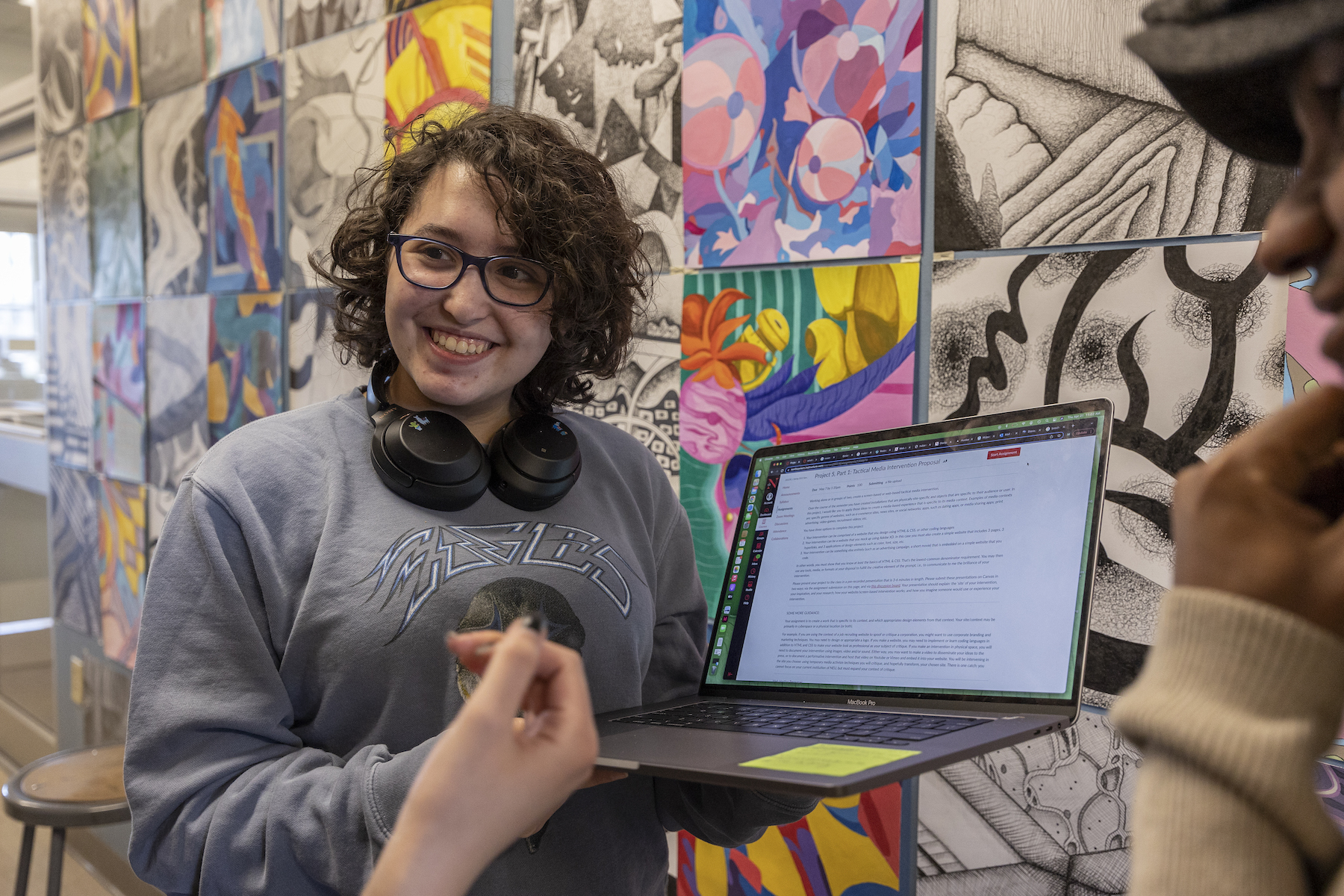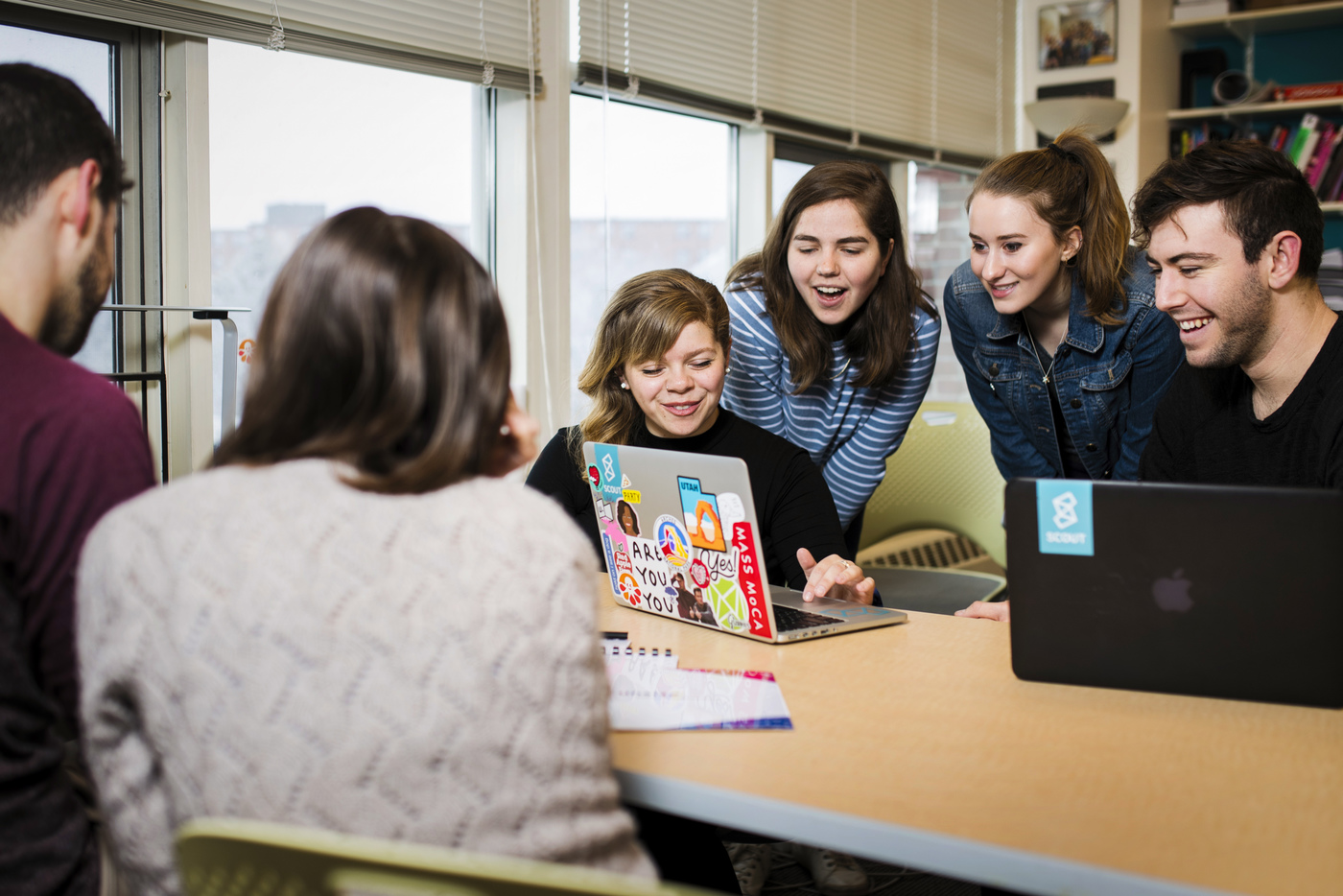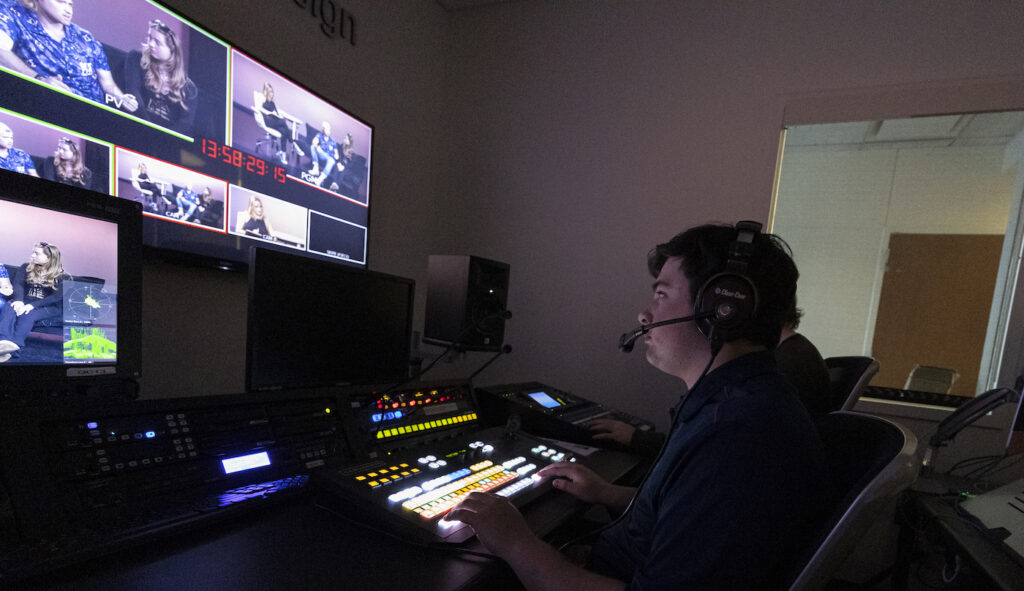Student Opportunities

Co-op Spotlights
Hear from current students in the Department of Communication Studies who have had exciting and enriching experiences at some of the world’s most prestigious and cutting-edge institutions during their co-op. And find out what they plan to do next.
Tyler Dolph, Class of '21
“This co-op has helped me solidify my technical and creative abilities and giving me the self confidence I didn’t necessarily have before.”
Co-op Position: Digital Media Assistant Co-op at Massachusetts Attorney General, Boston, MA
Lauren Feeney, Class of '21
“When I came here, they expected me to be doing a lot more than just an intern.”
Co-op Position: Running Product Marketing co-op at Reebok, Canton, MA
Creative Spaces
The Communication Studies department maintains a media lab to support courses in basic and advanced sound production. The media lab is also used to support courses in digital editing and special effects and postproduction for television and film, and for voice-over work.

CAMD Media Studio
The CAMD Media Studio in Shillman Hall is a cutting-edge facility that features the latest music and video technologies. Inside you’ll find:
27 workstations with new high-end Mac Pros and 34″ ultrawide LG monitors. Editing applications include Avid Media Composer 8.3, Adobe Creative Suite, and Final Cut Pro X. All workstations are tied to an internal Avid ISIS server.
- An HD TV production studio with a full complement of equipment, including cameras, teleprompters, LED studio lighting, XPression graphics, and more.
- A green screen room that includes a state-of-the-art motion capture system. Frequently used by animation, gaming, Art + Design, and theatre students, this space also has a removable green foam-tile floor, so students can composite objects and people using a variety of software applications.
- A recording studio that allows music industry students to play and record at a professional level. This space houses a grand piano, drum set, DigiDesign C/24 mixing board, ProTools software, and a wide variety of professional microphones.
- A wide range of new field equipment, including traditional disk-based camcorders, DSLRs, audio recorders, LED light kits, microphones, tripods, stabilizer rigs, and more.
The facility also includes a classroom/lab consisting of 16 student workstations with recessed monitors, plus an instructor workstation tied into the projection system. Northeastern University’s Snell Library also offers training and editing facilities in the Recording Studios. Digital video cameras may be checked out at Infocommons in the library.

Student Clubs and Organizations







